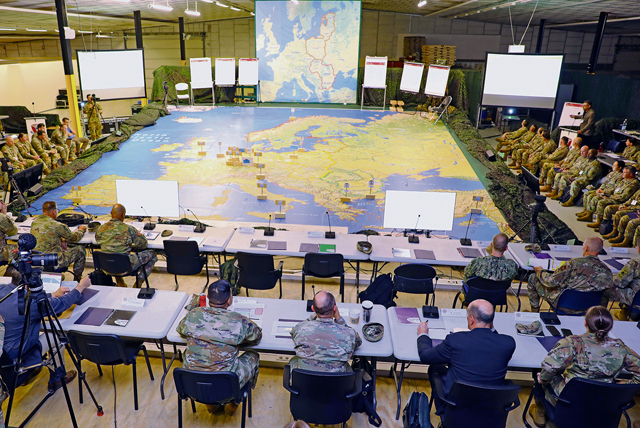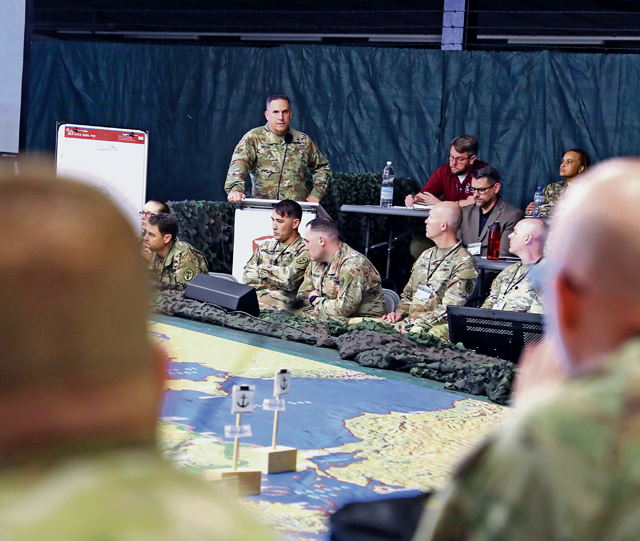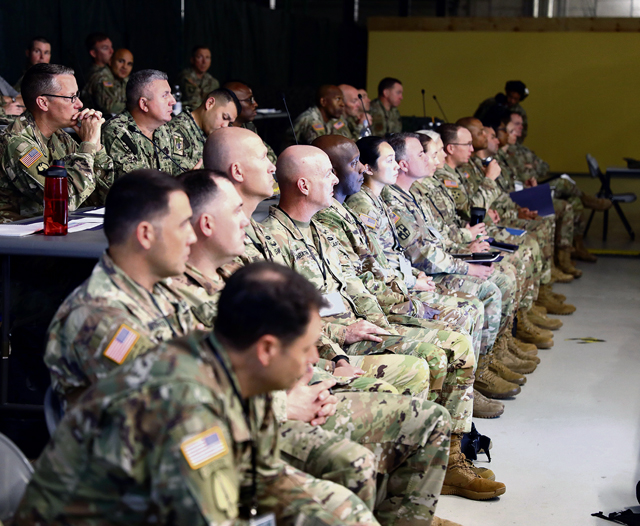
More than 120 U.S. military medical leaders, providers, planners, and logisticians from across the European and African theaters assembled at Rhine Ordnance Barracks, Aug. 20-22 to take part in a Senior Leader Forum hosted by Medical Readiness Command, Europe.
The purpose of the forum was to establish a common operational picture, orient medical leaders to the Europe and African theaters and synchronize all theater medical activities for any potential real-world contingencies that may arise.
The host for the forum was U.S. Army Brig. Gen. Roger Giraud, commander of Medical Readiness Command, Europe, command surgeon for U.S. Army Europe and Africa and director of Defense Health Network Europe. During his opening remarks, Giraud highlighted the importance of unity of effort, convergence, and collaboration among the theater U.S. military medical services.

“The goal of this forum is to achieve convergence, unity of effort towards a common goal, a shared vision and support of our combatant commands and the service components across the theaters,” said Giraud. “We are here to further integrate, coordinate and synchronize, and work towards a strategy with defined outcomes.“
According to event organizers, the forum provided a unique opportunity for U.S. military medical assets in Europe and Africa to share lessons learned and establish a common operating picture to better serve U.S. forces dispersed across the European and African theaters.
“We must be ready now as we move through the continuum from competition, into crisis and into potential conflict,” added Giraud. “The potential, of course, exists that we are ready to deliver excellent medical care to those who depend upon us. And that is non-negotiable.”

Senior U.S. military medical officials indicate that providing the best medical care possible to U.S. servicemembers and their mission is a top priority for all DOD medical leaders across the theater and area of operation.
“We have to bring together all the DOD medical assets supporting Europe and Africa,” Giraud added. “We must understand the overarching plan that we’re supporting, and then we must have a support plan that is nested with that operational plan so that our medical teams understand what it is we need to deliver to the forces that we support.”
According to military medical experts, planning events like this are critical in supporting theater-wide U.S. military tactical operations.
“What we have at stake is that Soldier, that Sailor, that Airman, that Marine, that Coast Guardsman,” said Giraud. “When he or she calls for a medic or corpsman, we must answer their call with the right medical capability at the right time and with the right skill sets so others may live.”


